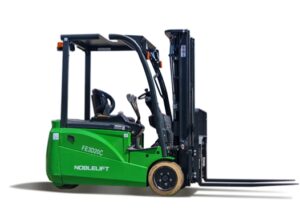The Role of Technology in Enhancing Forklift Efficiency
In today’s fast-paced industrial environment, the efficiency of forklift truck handling plays a crucial role in boosting overall warehouse productivity. With the advent of advanced technology, the landscape of material handling has undergone a significant transformation. This article explores how modern technological innovations are enhancing forklift efficiency and contributing to a more productive warehouse environment.
1. Introduction to Technological Advancements in Forklift Handling
The integration of technology in forklift operations has revolutionized the way warehouses function. From automated guided vehicles (AGVs) to telematics systems, these advancements are designed to optimize forklift performance, reduce downtime, and improve safety. By leveraging these technologies, warehouses can achieve higher levels of efficiency and productivity.
 ForkLift electric | China Manufacturer Trade supplier Materials Handling electric Fork-lifts Truck Sale Buy Online Trade Importer of Industrial Equipment BUY in USA/UK/India/Australia
ForkLift electric | China Manufacturer Trade supplier Materials Handling electric Fork-lifts Truck Sale Buy Online Trade Importer of Industrial Equipment BUY in USA/UK/India/Australia
2. Automated Guided Vehicles (AGVs)
AGVs are self-guided vehicles that can transport materials within a warehouse without human intervention. These vehicles use sensors, cameras, and navigation systems to move along predefined paths, ensuring precise and efficient material handling. AGVs can operate 24/7, reducing the need for manual labor and minimizing the risk of human error. This automation leads to faster turnaround times and increased productivity.
3. Telematics Systems
Telematics systems provide real-time data on forklift performance, usage, and maintenance needs. By collecting and analyzing this data, warehouse managers can make informed decisions to optimize forklift operations. For example, telematics can identify underutilized forklifts, track fuel consumption, and monitor operator behavior. This information helps in scheduling maintenance, reducing downtime, and improving overall efficiency.
4. Advanced Safety Features
Modern forklifts are equipped with advanced safety features such as collision avoidance systems, proximity sensors, and automatic braking. These features enhance operator safety and reduce the likelihood of accidents. By preventing collisions and ensuring safe operation, these technologies contribute to a more efficient and productive warehouse environment.
5. Energy-Efficient Forklifts
The shift towards energy-efficient forklifts, such as electric and hybrid models, has also played a significant role in enhancing productivity. These forklifts offer longer operating hours, lower maintenance costs, and reduced environmental impact. By adopting energy-efficient forklifts, warehouses can achieve cost savings and improve their sustainability efforts.
6. Conclusion
The integration of technology in forklift truck handling has brought about a paradigm shift in warehouse productivity. Automated guided vehicles, telematics systems, advanced safety features, and energy-efficient forklifts are just a few examples of how technology is transforming material handling. By embracing these innovations, warehouses can achieve higher levels of efficiency, reduce operational costs, and create a safer working environment. As technology continues to evolve, the future of forklift handling looks promising, with even more advancements on the horizon.
